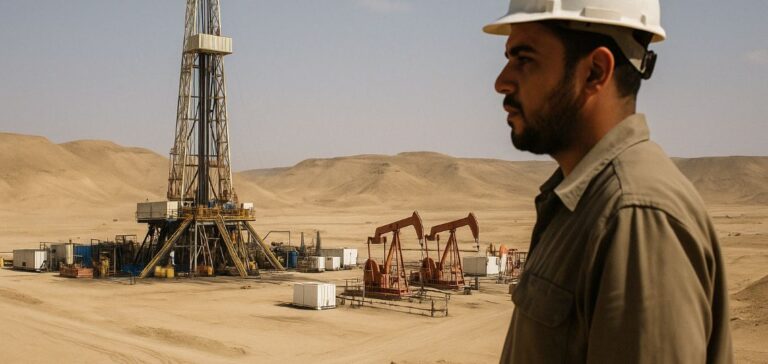Egypt has initiated a new oil exploration campaign in the Gulf of Gharib, located in the Eastern Desert, aiming to drill 75 additional wells over the next twelve months. This initiative is led by the state-owned Egyptian General Petroleum Corporation (EGPC), which has mobilised three modern drilling rigs to accelerate the development of this strategically modest yet significant area.
The targeted region currently produces approximately 1,500 barrels per day. Authorities aim to add another 7,500 barrels, aligning with the national objective to raise overall crude production to 637,000 barrels per day—a 9% increase during the 2024/2025 fiscal year. This strategy responds to a chronic energy deficit, while aiming to reduce reliance on hydrocarbon imports that heavily burden public finances.
Investment and energy objectives
In 2024, $200mn was allocated to hydrocarbon exploration and development projects nationwide. The Egyptian government seeks to attract up to $4bn in short-term foreign investment through this campaign, highlighting increased domestic supply stability and ongoing infrastructure modernisation.
The Eastern Desert projects are part of a broader strategy to strengthen the country’s capacity for oil and gas production. The goal is to establish a more resilient energy base capable of supporting national economic demands and securing Egypt’s growing energy needs.
Investor confidence and energy security
By boosting national production capacity, Egypt also aims to reassure international investors of the long-term viability of its energy sector projects. This drilling campaign complements Cairo’s efforts to position the country as a reliable regional energy supplier.
The planned drilling in the Gulf of Gharib also represents a strategic lever to support domestic macroeconomic balances. Strengthening domestic production could, in the medium term, reduce foreign currency outflows linked to fuel imports and reinforce national energy reserves.






















